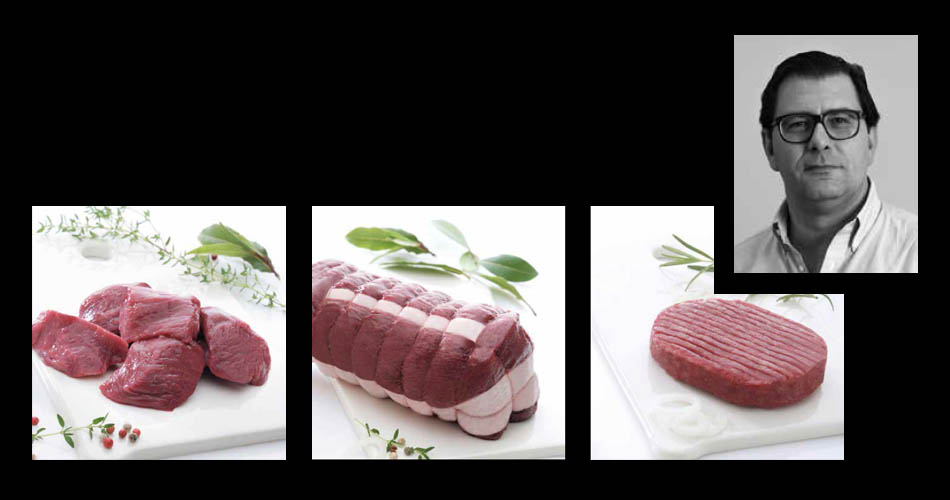Paradoxically, regulation may end up damaging the very object it set out to protect. A closer look at the horse trade in Europe reveals that regulation does not yield the most sustainable solution. Instead, it creates unnecessary food waste and endangers animal welfare. Chevideco NV trades meat and by-products from horses. It buys live horses in fourteen countries, has them slaughtered locally to minimize transport of live animals, and sells meat and byproducts internationally from its headquarters in Rekkem, Belgium. The company has another seat in Romania and a trading cooperation with a partner in Argentina.
“Everyone in our trade has its own specialty, and ours is our passion for by-products,” says Olivier Kemseke, General Manager of Chevideco and third generation owner of the company with his cousin Philippe Kemseke.
He feels quite strongly that it is outdated to slaughter horses just for their meat. In this day and age of sustainability, it is key to gain maximum value from the animals. He sells 75% of a horse in their culinary meat trade, which covers the entire sector of butchers, supermarkets and wholesalers, and the meat processing industry.
Portions range from 10 kilos to 100 tons. The company uses 23% of that same horse in a range of by-products like leather and ingredients for the pharmaceutical and biomedical industry. Interestingly, organs may end up in universities for training vets, and hooves in the education of blacksmiths who repair and fit horseshoes.
As much as 93% of the company’s products are exported. The company has plans to expand the premises, which is the third expansion in ten years.
“I like to attend horse markets myself to purchase live animals, because these markets are the foundation of our trade,” Mr. Kemseke notes. He observes a shift to new markets. For instance, no dog is allergic to horse meat as a prime source of protein. So meat trimmings are now going to exclusive pet food producers, as well as to sausage makers.
Mr. Kemseke’s brother and sister started Ecoclavis NV, with a pet food brand Jolipet.
Mr. Kemseke also observes they increasingly have to pay attention to political issues. “Our industry is an easy target, because we slaughter a beautiful animal. It is not fair that our industry should suffer from animal abuse in another industry,” he says. “We set up the project Respectful Life with international stakeholders. Researchers at the University of Leuven are monitoring our entire chain.”
Another political issues is that in Europe, horses that are excluded from slaughter at some point in their life by someone, are excluded for life. This leads to a huge waste of high quality food, since about half of the seven million horses in Europe are excluded. It also leads to misery for the animals themselves.
“Horses are often excluded from slaughter for sentimental reasons, and owners later discover that no-one wants to buy their horse if they can’t dispose of it in a way they see fit. Many horses are left without activities and with poor care,” Mr. Kemseke explains. He is in favour of the option to remove this exclusion and wait for six months for medication and so on to leave the horse’s body, after which owners can sell their horse for slaughter.
“All we ask and lobby for is an equivalent approach. You see, horsemeat from outside of Europe may be imported after their exclusion has been removed at least six months before slaughter,” he states.
After three years of lobbying, Brussels is aware what the problem is. According to Mr. Kemseke, governments should engage in constructive discussions and not be too sensitive to emotional arguments. “Our company is going on like we started generations ago: passion engenders knowledge, knowledge engenders increased awareness. We listen to our clients and consumers, and want them to be able to enjoy our products with a clear conscience.”
Source
https://www.european-food.com/chevideco-nv/portrait/
In quest of equivalence (pdf)
